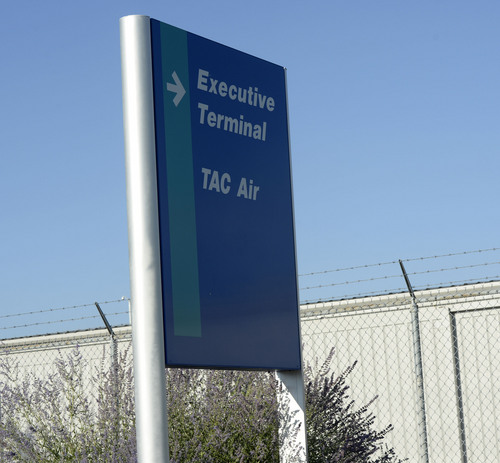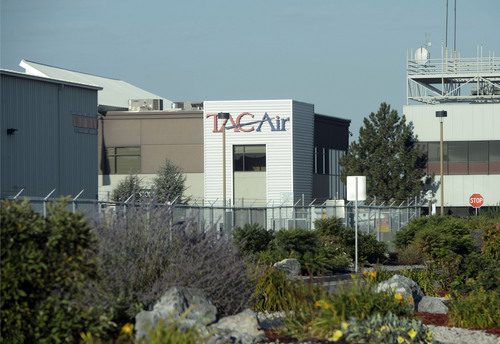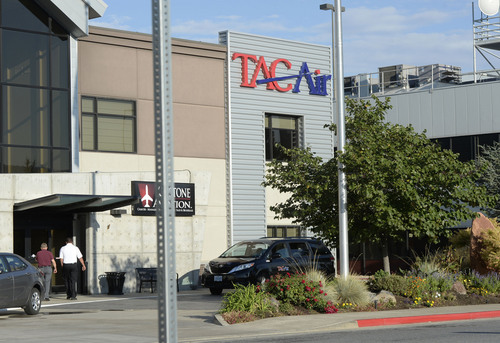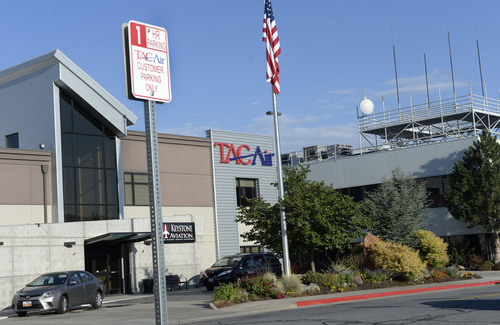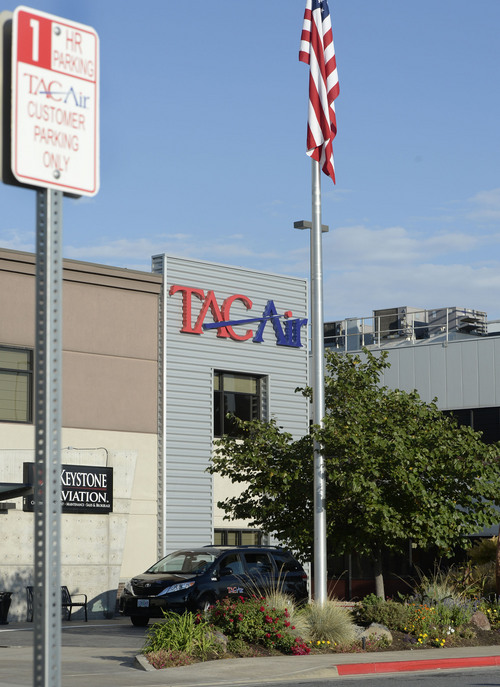This is an archived article that was published on sltrib.com in 2014, and information in the article may be outdated. It is provided only for personal research purposes and may not be reprinted.
Salt Lake City International Airport is trying to break up a monopoly that handles its general aviation fueling and ground services. Otherwise, it says federal officials could block hundreds of millions in funding for the airport's $1.8 billion expansion.
But TAC Air — a Texas-based company that bought out other providers to form the monopoly in 2011 — disagrees.
It says many airports have just one provider for such services, and have faced no federal sanctions. It contends the airport is unfairly trying to confiscate up to $30 million worth of improvements in buildings it now uses to hand them to a new competitor.
"We are not opposed to competition. We are just opposed to unfair competition," said Greg Arnold, chairman and CEO of TAC Air.
The company now is trying to go over the head of Salt Lake City to take its fight to the Legislature — where it found some sympathy as several lawmakers are now volunteering to mediate the conflict, noting that both sides are claiming the other has been stonewalling.
Sen. Kevin Van Tassell, R-Vernal, co-chairman of the Transportation Interim Committee, volunteered as a mediator, as did Sen. Stuart Adams, R-Layton, and Rep. Don Ipson, R-St. George. "There looks like there is some room where we can resolve some of these things," Van Tassell said.
The committee listened to both sides at length this week, including an argument from the airport that the Legislature is not the appropriate place to resolve the fray.
—
Leases • As background, Maureen Riley, executive director of the airport, explained that TAC Air holds numerous, separate leases for a variety of buildings and operations scattered on the east side of the airport. Some of the older leases expire next year.
She said the long-term leases for bare ground were obtained by several predecessors of TAC, who then built hangars, offices and fueling operations, knowing that at the end of the lease the ownership would go to city. The airport would then rebid them for full market value.
Riley said such arrangements are standard by airports nationally — and says the city advised TAC Air of the situation when it acquired leases nearing expiration.
—
FAA problems • Riley said the airport wants to take advantage of rebidding next year to break up the monopoly and bring in a second operator. She said Federal Aviation Administration rules require making such competition available, if enough land and facilities are available. The airport says they are; TAC disagrees.
Riley said the airport is hoping for $200 million to $300 million in federal funding for a $1.8 billion expansion project just beginning that will replace commercial terminals. "We do not in any way want to jeopardize that funding by ignoring regulations," she told lawmakers.
Arnold said many major airports have monopolies similar to Salt Lake City's situation and have not faced FAA sanctions. He said sanctions are brought only in cases where the FAA finds that such a breakup is needed, and an airport fails to comply.
—
Competition • Arnold says the FAA is interested mostly in ensuring that competition exists, and he says it does.
"We are providing services to aircraft that are moving all over the country, so we are competing with airports and jet-fuel providers before Salt Lake City and after" on travel itineraries, said Kimberly Page, chief operating officer of Keystone Aviation, a subsidiary of TAC Air.
Arnold complains TAC faces losing up to $30 million in improvements, although Riley contends that TAC's predecessors spent that money. Arnold says TAC is afraid to make more needed investments in facilities, because it could lose them as time runs out on many existing leases.
"Without certainty, you certainly cannot invest private funds," Page said.
TAC also says it may be forced to move some related operations out of the airport, including some new-aircraft sales and regional repairs. "We would prefer not to," Arnold said. "But we may be left no choice."
—
Unsafe? • The company also complains that the city's plan could leave a "checkerboard" pattern of ownership and operations between competitors because of leases expiring at different times. Such a hodgepodge would be "congested, inefficient and frankly, it is unsafe," Page said.
The airport has offered to negotiate consolidating leases to prevent the checkerboard pattern, Riley said, but TAC has been unwilling to engage. Page has a different take, saying the airport was heavy handed and warned that if TAC did not agree to a consolidation, leases would simply be given to a new operator as they expired.
TAC Air proposes as an alternative that the airport open up undeveloped land to a second provider, and allow competition that way. But Riley said the parcels TAC proposes are not suited for such a purpose. Some are slated for other operations, under lease by neighbors or have no developed roads or utilities.
When some lawmakers asked Riley if she thought it appropriate for the Legislature to intervene, she said airport service companies that feel mistreated usually appeal to the FAA. The agency, she said, has the experience and expertise to decide such disputes.
Legislators pushed the two sides to negotiate and seek a way to protect the interests of both.
"I just encourage and admonish everyone to sit down and get things done right," said Sen. Wayne Harper, R-Taylorsville. "Let's get together and talk."


